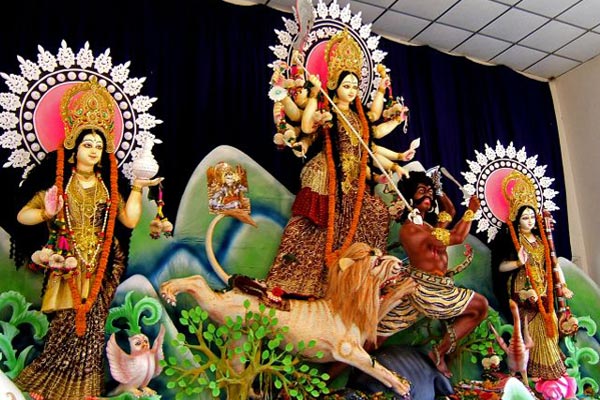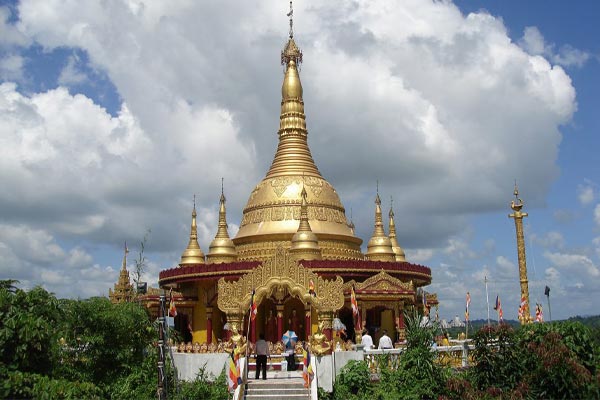
Muslim
Eid ul-Fitr – on the 1st day of Shawwal month of the lunar Islamic calendar.
Eid ul-Adha – on the 10th day of Dhu al-Hijjah month of the Islamic calendar.
Chaand Raat – on the 29th or 30th night of Ramadan month of the Islamic calendar.
Ashura – on the 10th day of Muharram in the Islamic calendar.
Eid-e-Meeladun Nabi – The Birth of the Prophet.
Shab-e-Qadr.
Shab-e-Baraat.
Bishwa Ijtema.

Hindu
Durga Puja – from the 2nd to the 7th day of Kartik month of the Bengali calendar.
Krishna Janmashtami – celebration of the birth of the Hindu deity Krishna
Dolyatra
Rathayatra, the most popular being Dhamrai Rathayatra.
Kali Puja
Saraswati Puja

Buddhist
Buddha Purnima – Buddha’s Birthday
Madhu Purnima
Kathin Chibardan – offering of woven robe made of cotton to monks and nuns.

Christian
Boro Din or Christmas – on 25 December of the Gregorian calendar.
Easter Sunday
Patriotic and National Observances Cultural festivals
General
Rokeya Day
Rabindra Jayanti
Nazrul Jayanti
Music
Dhaka World Music Festival (music)
Bengal Classical Music Festival
Folk
Pahela Baishakh – on the 1st day of the Bengali calendar and summer festival; also called Bangla Noboborsho.
Boshonto Utshob – Spring festival also known as Pohela Falgun.
Nabanna – Winter and harvest festival.
Borsha Utshob – Monsoon festival.
Nouka Baich – Boat racing festivals held after the monsoon when rivers are filled
Others
Dhaka Art Summit
Hay Festival Dhaka
Dhaka Fashion Week
Dhaka International Film Festival
Chobi Mela International Photography Festival
CRACK International Art Camp
International Children’s Film Festival Bangladesh

